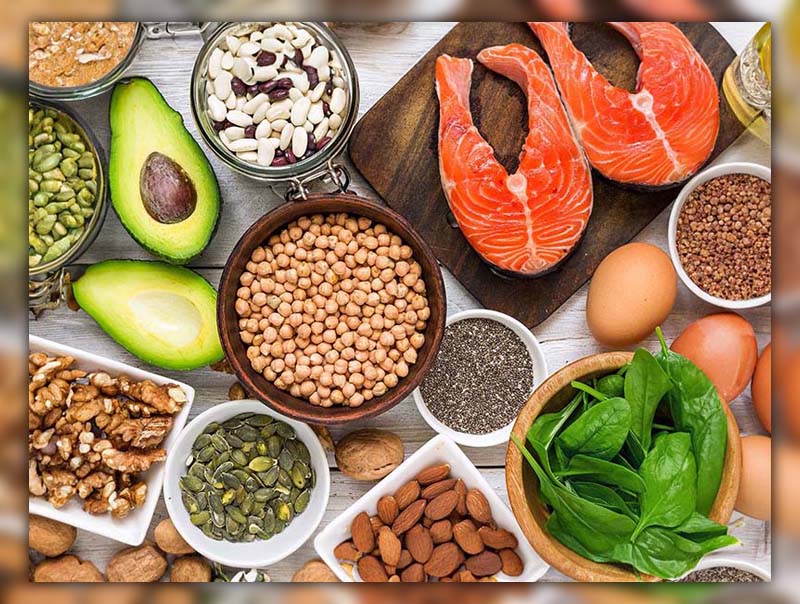Welcome, seekers of a wholesome and harmonious lifestyle! Are you battling persistent health issues and seeking a natural, empowering solution? Is the idea of embracing a nourishing “”naturopath diet”” swirling in your thoughts, but you need the right guidance to embark on this transformative journey?
Our blog is crafted with you in mind, addressing your concerns and curiosities. Discover the art and science of a Naturopathic diet, unlocking a world of wellness, holistic nutrition, and dietary wisdom that could be the key to reclaiming your vitality. Let’s delve into a realm where vibrant health and nature’s bounty intersect.
Rules of Naturopath Diet

A Naturopathic diet emphasizes the consumption of fresh, organic wholefoods that are in season and locally sourced. This approach centers around a diverse array of plant-based foods, including a variety of colorful vegetables, fruits, culinary herbs and spices, whole grains, seeds (like sprouts), nuts, and legumes. These plant-based foods are rich in essential vitamins and minerals crucial for overall health.
When it comes to animal products, opt for organic or game, but in moderation—limiting intake to once or twice a week due to the high acidity of meat.
For balanced blood sugar levels and lasting satiety, it’s important to include a high-quality protein source in each meal.
Healthy fats are a vital component of this dietary approach, with a special emphasis on omega-3 fatty acids sourced from wild-caught oily fish, flaxseeds, and chia seeds. These fats play a critical role in cell membrane structure, brain function, heart health, and reducing inflammation within the body.
Proper hydration is fundamental, and consuming sufficient filtered water is essential. Water regulates body temperature, aids in nutrient transportation, waste removal, joint and cartilage nourishment, and supports digestion by facilitating bile production.
Regular fasting gives your digestive system a break, allowing it to rejuvenate while channeling energy toward healing and repairing other areas of your body. Additionally, fasting supports a healthy weight balance and helps curb overconsumption of food.
Things you Should Avoid

- Avoid certain cooking methods that involve high heat, such as grilling, frying, and boiling.
- Cooking oil (Coconut oil)
- Junk foods
- Artificial colorings
- Sweeteners
- Pesticides
- Chemical additives
- Commercial baked goods
- Refined or overheated oils
- Rock salt
- Sea salt
- Himalayan salt
- Processed cows’ dairy
- Non-organic soy products
- Limit or avoid coffee
- Alcohol
Benefits of Naturopath Diet
Adopting a Naturopathic diet brings forth a host of health benefits, including:

- Enhanced Digestion and Optimal Nutrient Absorption: The emphasis on fresh, wholefoods and plant-based options in a Naturopathic diet supports a healthy digestive system
- Improved Sleep Quality: By steering clear of caffeine-rich beverages like coffee and focusing on a balanced, nutritious diet, individuals following this approach often improved sleep quality.
- Diminished Inflammation and Pain: The avoidance of processed foods and damaged fats helps in reducing inflammation within the body, consequently leading to decreased instances of pain and discomfort.
- Effective Detoxification and Cleansing: The natural, wholesome components of this diet, along with regular fasting, assist the body in eliminating harmful toxins, aiding in a thorough detoxification and cleansing process.
- Strengthened Immune System and Radiant Skin: The nutrient-dense, plant-focused aspect of the diet contributes to a bolstered immune system and healthier, glowing skin due to the abundance of vitamins, minerals, and antioxidants.
- Balanced Blood Sugar Levels and Enhanced Mood: By incorporating good quality proteins and healthy fats into each meal, the diet helps maintain steady blood sugar levels, which, in turn, stabilizes mood and provides sustained energy throughout the day.
- Prevention of Diseases and Chronic Health Conditions: Following a Naturopathic diet can serve as a proactive approach to prevent various diseases and chronic health issues, setting the stage for a longer, healthier life.
Naturopath Diet Plan
Here’s a well-structured naturopath diet plan to guide your daily meals and ensure you’re nourishing your body optimally throughout the day:
7:00 am-8:00 am – Morning Refreshment:

- Warm lime juice / Green tea / Black tea with steamed garlic (2 / 3 cloves), Tender Neem leaves (3 / 4 leaves), Punarnava leaves / Ashwagandha leaves (4 / 5 leaves), Soaked Methi – 10 gms (35 Kcals)
- Wheatgrass juice – 50 ml (20 Kcals)
- Green smoothie – 100 ml (30 Kcals)
- Grapefruit, pineapple & ginger smoothie – 100 ml (50 Kcals)
9:30 am – Breakfast: (Choose one)
- Vegetable Oats porridge – 100 ml (175 Kcals)
- Vegetable Millets Upma – 100 gm (175 Kcals)
- Vegetable idly – 2 no with Sambar (approx 175 Kcals)
- Mixed vegetable Besan chilla – 2 no (approx 250 Kcals) with Dhania / Tomato chutney
11:00 am – Mid-morning Juice or Fruit: (Choose one)

- Masala Buttermilk with mint, green chilli, dhaniya & ginger – 100 ml (45 Kcals)
- Ghiya Dhaniya juice – 100 ml (20 Kcals)
- Ash gourd juice – 100 ml (20 Kcals)
- One Fruit: Banana (75 Kcals) / Orange (50 Kcals) / Avocado- 60 gms (150 Kcals) / Watermelon -100 gms (25 Kcals)
12:30 pm – Lunch:

- Phulka (Roti) – 1 no (approx 80 Kcals) / brown rice – 30 gms (100 Kcals)
- Green leafy vegetable – 50 gms (25 Kcals)
- Thin Dal – 30 ml (75 Kcals)
- Fibrous vegetable- 50 gms (55 Kcals) (Beans, Carrots, Cauliflower, Ridge gourd, Bottle gourd)
2:00 pm – Afternoon Refreshment: (Choose one)

- Barley water – 200 ml (50 Kcals)
- Kokum juice (½ tsp Jaggery no salt) – 200 ml (45 Kcals)
- Lime juice – 200 ml or Carrot juice – 200 ml (55 Kcals)
- Aloe vera juice – 100 ml
4:00 pm – Nutritious Snack:

- Wholesome juice – 100 ml (80 Kcals)
5:30 pm – Evening Snack: (Choose one)

- Green tea with Multigrain bread toast – 2 no (170 Kcals)
- Roasted pumpkin seeds & Sunflower seeds – 10 gms (45 Kcals)
- Roasted Channa – 20 gms (no salt) (70 Kcals)
- Mixed Nuts with Dates – 20 gms (approx – 150 Kcals)
6:30 pm – Dinner:

- Two fruits – Papaya -100 gms (45 Kcals) and Pineapple -100gms (50 Kcals) or any two fruits approx (120 Kcals)
- Stir-fried vegetable – (Broccoli, Mushrooms, Asparagus, Carrots, Yellow zucchini, Red cabbage with celery & tofu) to add olive oil, herbs, spices & lemon juice. (Approx-100 Kcals)
- Soup – Any seasonal vegetables fresh from the farm – 100 ml (approx-100 Kcals)
8:00 pm – Evening Beverage:

- Soya milk – 100 ml with dates – 2 no (approx- 120 Kcals)
Naturopath Detox Diet
Embark on a revitalizing journey with these carefully crafted Naturopathic detox drinks and smoothies, designed to rejuvenate your body and support a natural cleanse:
1. Lemon Ginger Morning Detox Drink: Kickstart your day with this inflammation-fighting and liver-supporting elixir.

Ingredients:
- Organic Lemons
- Fresh Ginger
- Raw Honey
- Collagen
- Charcoal Beauty Elixir (for smoother skin)
- Lavender (to aid relaxation and sleep)
2. Collagen Charcoal Beauty Elixir: Enhance your beauty regime and achieve smoother skin with this calming elixir, best enjoyed before bedtime.

Ingredients:
- Lavender
- Lemon
- Collagen
- Coconut Charcoal
- Raw Honey
3. Apple Cider Turmeric Detox Drink: Boost your immune system, increase energy, and support weight loss with this potent and versatile detoxifying blend.

Ingredients:
- Apple Cider Vinegar
- Lemon Juice
- Turmeric
- Hot or Warm Water
- Maple Syrup or Honey
- Cayenne Pepper powder
4. Broccoli Detox Smoothie: Perfect for those seeking weight loss, this smoothie offers essential nutrients and protein, with the added benefits of fiber, Vitamin K, Vitamin C, iron, and potassium from broccoli.

Ingredients:
- Broccoli
- Banana
- Pineapple
- Milk
Naturopath Detox Diet for Endometriosis
In managing endometriosis, a chronic inflammatory condition, a Naturopathic detox diet can play a significant role in alleviating symptoms and promoting overall well-being. Here’s a tailored approach, focusing specifically on a naturopath diet for endometriosis, to help manage the condition:
Foods and Drinks to Avoid: Steer clear of caffeine, alcohol, sugar, refined carbohydrates (bread, cereals, pizza, pasta, pastries, cakes), processed foods, trans fats (margarine, vegetable oils, baked products), and deep-fried foods. These items contribute to acidity and inflammation within the body.

Incorporate Anti-Inflammatory and Antioxidant-Rich Foods: Focus on an anti-inflammatory and antioxidant-rich diet to mitigate excess inflammation and combat damage caused by free radicals. Opt for organic vegetables and fruits abundant in antioxidants like vitamin A (carrots, broccoli, chard, squash) and vitamin C (kiwi fruit, citrus fruits, cabbage, blueberries, cauliflower). Nuts and seeds, rich in vitamin E, also serve as vital antioxidants (sunflower seeds, raw peanuts, almonds, wheatgerm oil).
Prioritize Omega-3 Fatty Acids: Integrate sources of omega-3 fatty acids into your diet, such as flaxseeds, flaxseed oil, walnuts, and chia seeds. Omega-3 fatty acids are essential for reducing inflammation and pain within the body.
Boost Fiber Intake: Increase your consumption of fiber-rich foods, including vegetables, whole grains and chia seeds. Fiber promotes the excretion of excess estrogen through the bowel, aiding in hormonal balance.
Monitor and Supplement Vitamin D: Check your vitamin D levels and supplement if needed. Vitamin D plays a crucial role in regulating the immune system, controlling inflammation, and identifying abnormal cells such as stray endometrial cells.
Explore Beneficial Herbs: Consider incorporating specific herbs known for their potential in managing endometriosis, including Ladies Mantle, Calendula, Shatavari, and Wild Yam. These herbs possess properties that can be beneficial in addressing symptoms associated with the condition.

The Bottom Line
In the tapestry of well-being, a “”naturopath diet“” is an empowering brushstroke, offering an artful approach to nourishing your body and soul. Through this blog, we’ve unraveled the essence of this enriching lifestyle, providing insights, tips, and knowledge to spark your wellness journey. But this is just the beginning of the expedition toward optimal health.
Explore more transformative blogs and embrace the vitality that awaits you at BodyfitNT. Let’s walk this path of health, one enlightened choice at a time. Stay tuned for more wisdom and wellness from us!

Born on July 26, 1960, Professor Tim Olds is a leading authority in the field of health sciences, focusing on exercise science, nutrition, and well-being. As the Bradley Distinguished Professor at the University of South Australia, his research offers pivotal insights into the effects of physical activity, diet, and lifestyle on health outcomes for both men and women.
Having completed two PhDs, one in French Studies and the other in exercise science, Professor Olds has uniquely blended his academic background to explore the multifaceted connections between human behavior, physical fitness, and nutrition. His work in mathematical modeling of cycling performance, anthropometry, and trends in fitness and fatness has informed strategies for weight management and healthy living.
Professor Olds served as the Project Director for the Australian National Nutrition and Physical Activity Survey, examining how diet and physical activity influence health on a national scale. His work on the ADAPT Project, focusing on 3D anthropometry, further showcased his innovative approach to understanding human physicality.
With numerous influential publications, Professor Olds has contributed substantially to the public’s understanding of diet, weight loss, and personalized fitness strategies. His findings have been instrumental in shaping health policies and behavioral change programs aimed at improving individual and community wellness.
From exploring women’s health concerns to understanding men’s fitness needs, Professor Olds’s research transcends gender barriers and offers a comprehensive view of the role of exercise and nutrition in enhancing life quality. His enduring commitment to health education and advocacy continues to inspire people to make informed decisions for a balanced and healthy life.
Professor Tim Olds’s trailblazing work stands as a vital resource for anyone interested in embracing a healthier lifestyle, understanding the science of physical activity, or pursuing effective strategies for diet and weight loss. His academic excellence and practical wisdom make him an essential voice in the ongoing conversation about health and well-being in the modern world.
PUBLISHED ARTICLES
- Olds, T. (2012). Evidence for a Sugars-to-Mental Health Pipeline. Atherosclerosis Supplements, 13(4), 29-30.
- Olds, T., Maher, C., & Zumin, S. (2011). The evolution of screen time: What’s next? Journal of Physical Activity and Health, 8(2), 236-244.
- Olds, T., Ferrar, K., Schranz, N., & Maher, C. (2013). Obese adolescents are less active than their normal‐weight peers, but wherein lies the difference? Journal of Adolescent Health, 53(6), 768-774.
- Olds, T., Maher, C., & Matricciani, L. (2010). Sleep duration or bedtime? Exploring the relationship between sleep habits and weight status and activity patterns. Sleep, 33(12), 1576-1581.
- Olds, T., Ridley, K., & Dollman, J. (2006). Screenieboppers and extreme screenies: The place of screen time in the time budgets of 10–13 year‐old Australian children. Australian and New Zealand Journal of Public Health, 30(2), 137-142.
These published articles reflect Professor Tim Olds’ contributions to various aspects of physical activity, sedentary behavior, and health-related research. They provide insights into the intricate relationship between lifestyle choices and health outcomes

